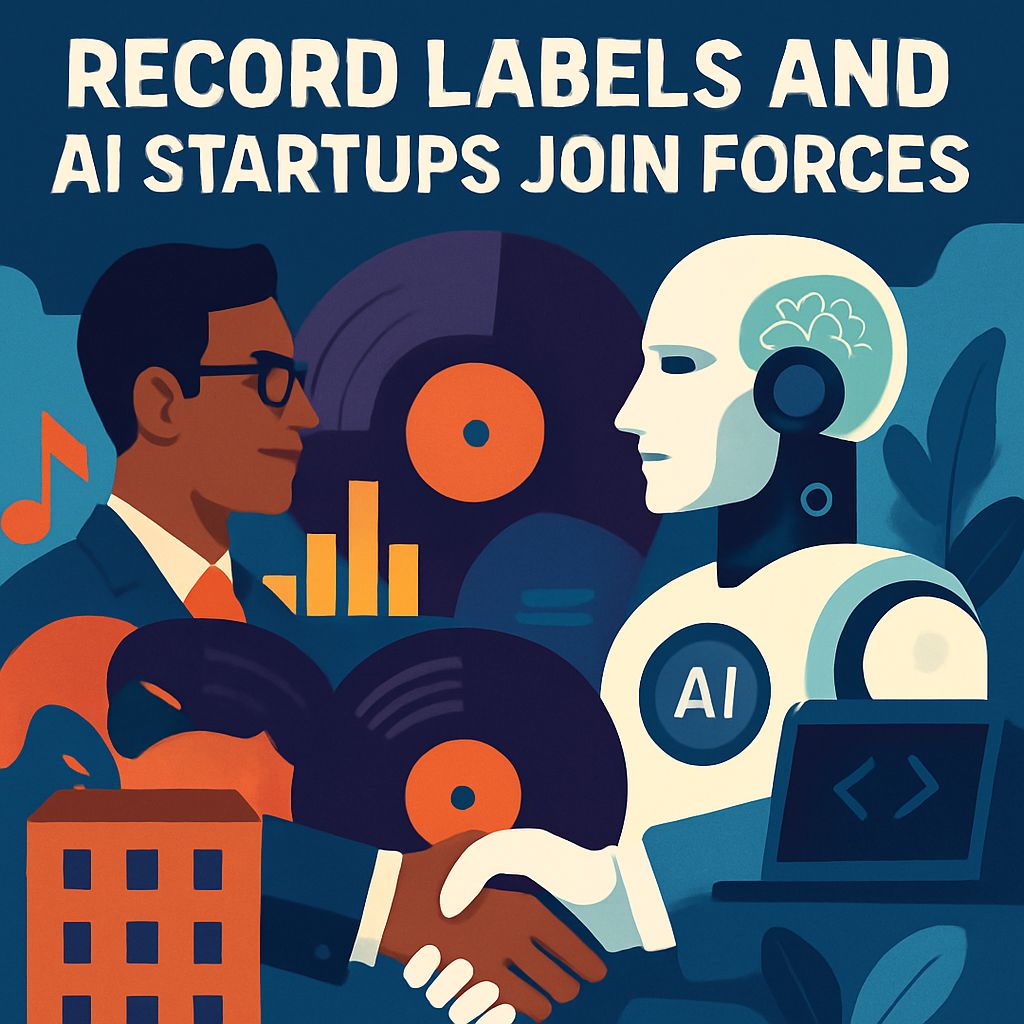Hey there, music lovers! Big news is brewing in the world of tunes and tech. Major record labels like Universal Music Group, Warner Music Group, and Sony Music Entertainment are in talks with AI music startups Udio and Suno to license their catalogs. This could be a game-changer for how music is created and shared in the AI era. Let’s dive into what’s happening and why it matters.
A New Beat in Music Creation
Imagine typing “a jazzy hip-hop track about chasing dreams” and getting a fully produced song in seconds. That’s the magic of Udio and Suno, two AI startups leading the charge in generative music. These platforms use algorithms trained on massive datasets—think millions of songs, beats, and melodies—to churn out original tracks based on text prompts. It’s like having a virtual band at your fingertips, and it’s opening doors for aspiring artists who might not have access to studios or producers.
But here’s the catch: to make those slick tracks, these AI models need to learn from existing music. And that’s where the record labels come in. According to Bloomberg, the big three labels are negotiating deals to license their music to Udio and Suno, potentially setting a precedent for how AI companies compensate artists.
Why the Talks Matter
This isn’t just about tech geeks and music execs shaking hands. These discussions could reshape the music industry. Here’s the deal:
- Artist Compensation: The labels are pushing for license fees and even a slice of equity in Udio and Suno. This means artists could get paid when their music is used to train AI models, addressing a longtime concern about fair pay in the digital age.
- Settling Old Scores: Last year, these same labels sued Udio and Suno, accusing them of copyright infringement for using copyrighted music without permission. These talks could resolve those lawsuits, turning rivals into partners.
- Control vs. Creativity: The negotiations aren’t all smooth sailing. Labels want tight control over how their music is used, while startups crave flexibility to keep innovating. It’s a tug-of-war between protecting intellectual property and pushing the boundaries of what AI can do.
A Bit of History Repeating?
If this feels like déjà vu, you’re not wrong. The music industry has been here before—think Napster in the early 2000s, when file-sharing flipped the industry upside down. Back then, labels fought hard against tech disruptors. Now, they’re trying a different tack: collaboration. Suno’s CEO, Mikey Shulman, has even said they’re having “productive discussions” to “grow the pie for music together.” It’s a nod to the idea that AI could expand the industry, not just disrupt it.
But not everyone’s singing Kumbaya. Some in the industry are skeptical. When Amazon partnered with Suno to integrate AI music into Alexa+, critics called it “ridiculous” given the ongoing lawsuits. It’s a reminder that trust is hard-won in this space.
What’s Next?
These talks are a race to set the standard. Whichever label and AI company strike a deal first could define how the industry handles AI music for years to come. Will it be a win-win where artists get paid, startups innovate, and fans get more music? Or will it be a messy compromise that leaves someone out in the cold? Only time will tell.
For now, I’m excited to see where this goes. As someone who’s dabbled in music production (and, let’s be honest, struggled with mixing tracks), the idea of AI democratizing music creation is thrilling. But it’s gotta be done right—artists deserve their fair share. So, keep an eye on this space, and maybe start brainstorming some song prompts for when these platforms go mainstream.
What do you think? Is AI music the future, or are we messing with the soul of creativity? Drop your thoughts below!
Sources: Bloomberg, June 1, 2025



